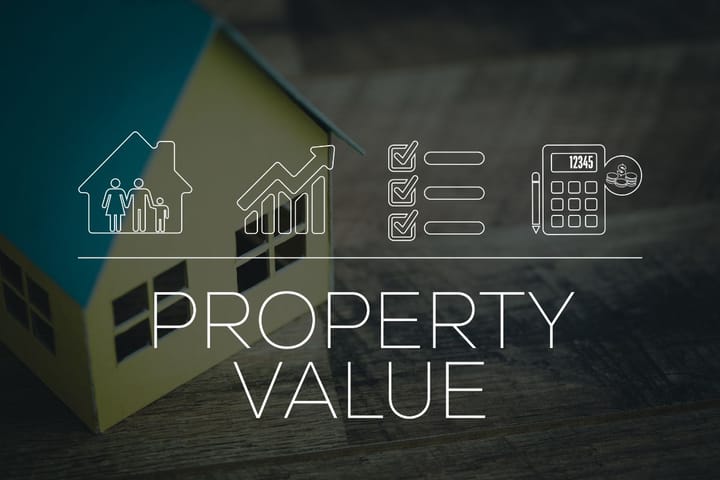How to Manage Increasing Interest Rates and Mortgage Payments: Tips and Strategies
Homeowners can tackle rising interest rates and mortgage costs with smart strategies like refinancing for lower rates, switching to fixed-rate loans for stability.

Managing increasing interest rates and mortgage payments can be a daunting task for homeowners. However, with the right strategies and knowledge, it is possible to navigate these challenges successfully. As interest rates continue to rise, it is important for homeowners to be proactive and take steps to manage their mortgage payments effectively.
One key strategy for managing increasing interest rates is to consider refinancing. Refinancing can help homeowners secure a lower interest rate, which can lead to significant savings over the life of the loan. Additionally, refinancing can provide an opportunity for homeowners to switch from an adjustable-rate mortgage to a fixed-rate mortgage, which can provide greater stability and predictability in monthly payments.
Another important step in managing increasing interest rates and mortgage payments is to create a budget and stick to it. By carefully tracking expenses and income, homeowners can identify areas where they can cut costs and free up funds to put towards their mortgage payments. Additionally, it is important to prioritize paying off high-interest debt, such as credit card balances, which can eat into available funds and make it more difficult to manage mortgage payments.
- Strategies for Managing Mortgages
- Budgeting for Higher Payments
- Negotiating with Lenders
- Long-Term Financial Planning
- Government Assistance Programs
- Legal and Tax Considerations
Strategies for Managing Mortgages
When interest rates rise, mortgage payments can become a burden for many homeowners. However, there are several strategies that can help manage increasing mortgage payments.

One effective strategy is to refinance the mortgage. Refinancing can lower the interest rate and monthly payments, which can make the mortgage more affordable. Homeowners can also consider extending the term of the mortgage to further reduce monthly payments. However, it is important to consider the costs associated with refinancing, such as closing costs and fees, before making a decision.
Another strategy is to make extra payments towards the mortgage principal. This can help reduce the overall interest paid over the life of the mortgage and shorten the term of the mortgage. Homeowners can also consider making bi-weekly payments instead of monthly payments, which can result in an extra payment each year and further reduce the term of the mortgage.
Homeowners can also consider downsizing or renting out a portion of their home to generate additional income to help cover mortgage payments. It is important to carefully consider the financial implications of these options before making a decision.
Overall, managing increasing mortgage payments requires careful consideration and planning. Homeowners should explore all available options and seek the advice of a financial professional before making any decisions.
Budgeting for Higher Payments
As interest rates increase, mortgage payments will also increase. It is important to have a budget in place to ensure that you can manage the higher payments. Here are some tips to help you budget for higher payments:
1. Review Your Current Budget
The first step in budgeting for higher mortgage payments is to review your current budget. Look at your income and expenses and identify areas where you can cut back. Consider reducing discretionary expenses like dining out or entertainment to free up some extra money.
2. Calculate Your New Mortgage Payment
Use a mortgage calculator to determine what your new mortgage payment will be. This will give you an idea of how much extra money you will need to budget for each month. Be sure to factor in any changes to your property taxes or insurance premiums.
3. Build a Cushion
It is always a good idea to have a cushion in your budget in case of unexpected expenses. Consider setting aside some money each month in an emergency fund to help cover any unexpected costs.
4. Consider Refinancing
If you are struggling to manage your mortgage payments, consider refinancing your mortgage. Refinancing can help you secure a lower interest rate and lower your monthly payments. It is important to weigh the costs and benefits of refinancing before making a decision.
By following these tips, you can budget for higher mortgage payments and manage your finances with confidence.
Negotiating with Lenders
When interest rates rise, mortgage payments increase, and homeowners may find themselves struggling to keep up with their monthly payments. In such situations, it is essential to communicate with the lender and negotiate a solution that works for both parties.

The following are some tips for negotiating with lenders:
- Be honest and upfront about your financial situation. Lenders are more likely to work with borrowers who are transparent about their income, expenses, and debts.
- Ask about available options. Lenders may offer a variety of options, such as refinancing, loan modification, or forbearance. Be sure to ask about the pros and cons of each option and how they will affect your overall financial situation.
- Consider working with a housing counselor. Housing counselors can help homeowners navigate the negotiation process and provide guidance on available options.
- Be persistent. Negotiating with lenders can be a lengthy and frustrating process, but it is essential to stay persistent and follow up regularly to ensure that progress is being made.
Remember that lenders want to avoid foreclosure as much as homeowners do. By working together and finding a mutually beneficial solution, both parties can avoid the negative consequences of defaulting on a mortgage.
Long-Term Financial Planning
When interest rates rise, mortgage payments can become a significant burden for homeowners. Therefore, long-term financial planning is essential to manage increasing interest rates and mortgage payments. Here are some tips to help you plan for the long term:
1. Create a Budget
Creating a budget is the first step toward managing your finances. A budget helps you keep track of your income and expenses, and it allows you to identify areas where you can cut back on spending. By creating a budget, you can ensure that you have enough money to cover your mortgage payments and other expenses.
2. Consider Refinancing
If you have a fixed-rate mortgage, refinancing may be a good option to consider when interest rates rise. Refinancing allows you to replace your existing mortgage with a new one with a lower interest rate. This can help you save money on your monthly mortgage payments and reduce the total amount of interest you pay over the life of your loan.
3. Pay Down Your Mortgage
Paying down your mortgage faster can help you save money on interest payments over the life of your loan. You can do this by making extra payments towards the principal balance of your mortgage. This will not only help you save money on interest payments but also reduce the length of your loan.
4. Consider Downsizing
If you are struggling to make your mortgage payments, downsizing may be an option to consider. Selling your home and buying a smaller one can help you reduce your mortgage payments and other expenses. However, it is important to consider the costs associated with selling and buying a new home before making a decision.
By following these tips, you can manage increasing interest rates and mortgage payments and ensure that you have a solid financial plan for the long term.
Government Assistance Programs
In times of increasing interest rates and mortgage payments, government assistance programs can be a valuable resource for homeowners who are struggling to make ends meet. These programs are designed to provide financial assistance to eligible homeowners, helping them to avoid foreclosure and stay in their homes.
One such program is the Home Affordable Modification Program (HAMP), which is offered by the U.S. Department of the Treasury. This program provides eligible homeowners with a loan modification that reduces their monthly mortgage payments to an affordable level. To be eligible for HAMP, homeowners must have a mortgage that originated on or before January 1, 2009, and their mortgage payment must be more than 31% of their gross monthly income.
Another program that can help homeowners in times of financial hardship is the Home Affordable Refinance Program (HARP), also offered by the U.S. Department of the Treasury. This program allows eligible homeowners to refinance their mortgage at a lower interest rate, which can help to reduce their monthly mortgage payments and make them more affordable. To be eligible for HARP, homeowners must have a mortgage that is owned or guaranteed by Fannie Mae or Freddie Mac, and they must be current on their mortgage payments.
In addition to these federal programs, many states and local governments offer their own assistance programs for homeowners who are struggling to make their mortgage payments. These programs may include loan modification assistance, financial counseling, and other forms of support. Homeowners who are facing financial hardship should contact their state or local housing agency to learn more about the assistance programs that are available to them.
Overall, government assistance programs can be a valuable resource for homeowners who are struggling to manage increasing interest rates and mortgage payments. By providing financial assistance and other forms of support, these programs can help homeowners to avoid foreclosure and stay in their homes.
Legal and Tax Considerations
When interest rates rise, homeowners may face an increase in their mortgage payments. However, there are legal and tax considerations that can help mitigate the impact of rising rates.
One option is to refinance the mortgage to a lower interest rate. This can lower the monthly payment and reduce the amount of interest paid over the life of the loan. However, refinancing can also come with fees and closing costs, so homeowners should carefully consider the financial benefits before making a decision.
Another option is to explore loan modification programs. These programs can help homeowners who are struggling to make their mortgage payments due to financial hardship. Loan modifications can include a reduction in the interest rate, an extension of the loan term, or a change in the type of loan. However, it is important to note that loan modifications can have tax implications, so homeowners should consult with a tax professional before pursuing this option.
Additionally, homeowners should be aware of the tax implications of mortgage interest deductions. The Tax Cuts and Jobs Act of 2017 placed limits on the amount of mortgage interest that can be deducted from federal income taxes. Homeowners should consult with a tax professional to understand how these changes may affect their tax liability.
Overall, it is important for homeowners to stay informed about legal and tax considerations when managing increasing interest rates and mortgage payments. By exploring options such as refinancing and loan modification programs, and staying aware of tax implications, homeowners can make informed decisions to help mitigate the impact of rising rates.




Comments ()